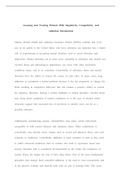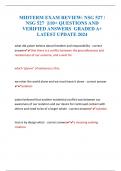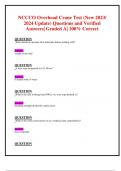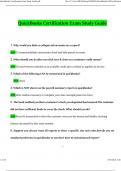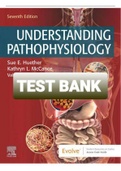Exam (elaborations)
NURS 6630 Week 10 Assignment: Assessing and Treating Patients With Impulsivity, Compulsivity, and Addiction
- Course
- Institution
Assessing and Treating Patients With Impulsivity, Compulsivity, and Addiction Impulsivity, compulsivity, and addiction are challenging disorders for patients across the life span. Impulsivity is the inclination to act upon sudden urges or desires without considering potential consequences; patients...
[Show more]
